- Home
- B. V. Larson
Death World (Undying Mercenaries Series Book 5) Page 10
Death World (Undying Mercenaries Series Book 5) Read online
Page 10
Grimly determined, the monster hugged her and sort of squatted over her. Prongs of some kind stabbed and scrabbled on her armor while she struggled and cried out.
We all laid into it then. After about twenty seconds of blasting and beating on the thing, we took it down at last.
It was a good effort, but we were too late to save Kivi. She lay on her back, coughing and writhing. Her faceplate was cracked and fogged up. Her armor looked like it had been run over by a truck.
“Are you burning?” I asked her, kneeling beside her.
“Some,” she said, her voice choking. “It’s the smoke—I can’t breathe. The acid penetrated my faceplate.”
“Drag her out of here!” I ordered. Carlos and Sargon did the honors, taking her back to Graves in the main hallway.
We swept the rest of the passageway and declared it clear. Carlos reported back to me after that—and the news wasn’t good.
“The vapor killed Kivi, as far as I can tell,” he said. “The smoke was poisonous.”
I nodded grimly, and we pressed ahead. The other squads had had similar experiences. It seemed like the aliens preferred to leave their kind behind when injured. The wounded monsters holed up and lay in wait for humans to wander by. Was that part of their tactics? Did these things even have natural behavior? I had no idea.
Each time we met up with resistance, it was a single alien. They fought to the death with relentless fury, using whatever they had left in them to do as much damage to us as they could.
Still, we cleared our zone over a ten minute period. Other units were doing the same all over Blue Deck.
Then, finally, Graves brought the rest of the unit in to support our platoon. As Leeson and Johnson hadn’t had much contact with the enemy, and no casualties, he ordered them to take the lead and press on toward the second hatch.
That’s where we found a full nest of creatures waiting for us.
-12-
Johnson’s squad was ambushed and mauled just moments after rushing past the acid-burned hatch.
This time, we didn’t encounter a lone, wounded monster left for the humans to find and exterminate. There were at least a dozen of them. The enemy was waiting on each side of the entrance in hungry groups.
Johnson’s weaponeer got off a burning shot, but the man had cranked his belcher for a wide-angle cone of fire. It simply wasn’t effective. To kill these aliens with a belcher took a focused, hard-hitting beam set for a full-second burn. I guess Johnson hadn’t gotten the memo on that one.
The weaponeer managed to singe several of the enemy, but all that did was send them into a rattling frenzy. The aliens were left with cooked skin, but they were far from dead.
Surrounding Johnson’s squad, their long, smoking arms reached out and plucked away rifles, arms and even heads. Acid streams squirted next, hosing down the clumped troops.
The purposeful spraying of acid—that was a new one. Up until now, we’d faced only wounded, weakened creatures. They’d only splashed us with acid when they were torn up. That’s when the acid leaked out like splattered blood. But apparently, when these monsters were intact, they possessed the power to eject their foul caustic liquids with accuracy and at will.
The fight was over within thirty seconds. Johnson’s squad had advanced through the hatch, and most of them died horribly. Harris and I watched, unable to help since we couldn’t fire down the passageway into the open hatch without hitting our own troops in the back. If we rushed in, we’d be so crowded in the cramped space we’d join the victims.
What was left of Johnson’s squad fell back, with Leeson and a few others making it back to our line. Leeson had been embedded with Johnson, and he’d gone in with the squad and made it back out.
With one eye burned away, Leeson was dying in my arms. Like the others from his ill-fated group, his armor was riddled with smoldering holes, the flesh bubbling beneath. He tried to tell me something, but I couldn’t make out the words.
I looked at Harris, who was making a gesture behind Leeson’s back. A throat-slitting gesture. I got it then.
Leeson was asking me to kill him.
I took out my sidearm and put the muzzle into his faceplate. Leeson looked grateful—but then he passed out and slumped. Carlos checked his vitals immediately.
“You can put that away, McGill. He’s gone.”
I holstered my weapon, feeling a degree of relief. I’d put down men in agony before, or those who were in danger of being captured. I’d never enjoyed it.
“2nd Squad, advance!” Graves said from behind me. The centurion’s voice was even and seemed unconcerned.
Harris was in charge of 2nd Squad. He didn’t look happy. Not at all. “Sir?” he asked. “Shouldn’t our platoon get a break? We just lost our adjunct, and a whole damned squad with him. After all—”
“Harris,” Graves interrupted. “You’re in command of your platoon now. We’ve been proceeding with caution up until, but our orders have changed. We’ve been directed to get to the revival machines within the next five minutes and report. Your squad has the most experience with this enemy at this point. You’re going to get in there and clean them out for me.”
“Well sir,” Harris said angrily, “if this is so important, might I suggest Winslade bring his skinny ass down here and personally help out?”
Everyone looked at Harris, but they didn’t say anything. This was an unusual display for him. He rarely back-talked Graves or otherwise bucked the chain of command publicly.
Even Graves seemed a little surprised. The centurion stepped forward and eyed Harris coldly.
“Chicken?” Graves asked.
“No sir, not at all. I don’t mind dying. I’ve done it more times than I can count.”
“Sure,” Graves said. “When you know you’ll come back, you’re all balls… All right Harris, fine.”
His eyes scanned the rest of us in the vicinity. “McGill? Show Harris how it’s done.”
“Yes, Centurion,” I said with a heavy heart.
Graves nodded approvingly, looking me over. He pointed to the smoking mess of burnt bodies and alien matter that had slimed-up the entrance to the center of Blue Deck.
“Penetrate that enemy position and defeat them in detail, McGill,” Graves ordered me. “Harris, consider yourself under McGill’s command for the duration of this action. Go!”
Harris’ mouth twisted up like he smelled a dead skunk. Graves knew what he was doing. He’d put me in charge of Harris to shame him.
But it was more than that. Harris was my senior, and he’d long had a problem with my rapid rise in the legion. In my opinion, that was due to a mixture of envy and outrage. As he’d often pointed out, I was likely to go off-script. Only in a legion like Varus, which respected results above all else, could I have gotten away with so much.
Slapping a fresh magazine into my rifle, I waved my squad forward. As I did so, I gave my head a little shake. I had to get my brain into this game if I was going to survive the next few minutes.
Thinking fast, I put up my fist before we reached the mess at the hatchway. Two squads behind me halted. I couldn’t charge in and repeat Johnson’s mistakes. I went down on one knee, and my people huddled up.
“Okay,” I said. “We don’t want to repeat Johnson’s mistakes. He rushed in there and got himself ambushed. We have to lure them out to us.”
“How the hell are we going to do that?” Harris snapped.
I didn’t look at him. I focused on Della instead.
“You’re fast on your feet,” I told her.
She studied me with big eyes. She didn’t even nod in recognition of the compliment—it was true, she was fast and agile, but she didn’t want to admit it. I figured she already had some idea where I was going with this.
“Trot up there with a grav-plasma grenade,” I told her. “Toss it in, and run back before they can grab you. Then race back to our lines. Your mission is to piss them off enough to chase you. When they come out, we’ll blast them.”
Della licked her lips once. “Is this because of the mud-pit?” she asked me.
“No, girl! You’re honestly the slipperiest trooper in the unit. Don’t worry, you’ll make it.”
Harris, Carlos and the rest of us watched her pop out a grenade, roll it between her fingers, and then nod. She ran off like a gazelle after that. She was in heavy armor, same as the rest of us, but she moved like she was in gym-class.
“She’s powered up her exoskeleton to full,” Carlos said. “She must have. No weapons output, no shielding, but plenty of speed.”
I nodded appreciatively. “Yeah, that sounds right.”
“That’s crazy,” Harris said, frowning. “If they catch her, they’ll burn her fast.”
I knew it was true, but I figured Della could play it her own way. She was the one doing the dying, after all.
Kneeling, I took careful aim. All around me, a dozen others took up firing positions, altering their weapons into rifle-mode. We aimed at the hatchway, which was still wreathed in a haze but not hidden behind roiling coils of smoke as it had been earlier.
“Crazy,” muttered Harris again, watching Della with me.
“It’s her death, and her call,” I said to Harris.
He frowned fiercely at me but didn’t say anything else. Among legionnaires, it was a generally accepted premise that if a trooper took a suicidal assignment, they should be allowed to die in their own damned way. That’s because we’d all died multiple times, and we felt a soldier had a right to make certain decisions when the end was near. This unofficial rule was part of our legion culture, I guess you could say, like allowing a condemned man a last meal, or giving him a choice between a firing squad and hanging. It was ingrained in us, part of our code of honor.
Della reached the hatch and crept up to it from the left side. She was slinking low, almost on her knees. In her hand was a live grenade.
“I said five minutes, McGill,” Graves buzzed in my helmet. “Not five hours. You’ve already blown about three minutes screwing around.”
“Taking action now, sir,” I reported back.
Della didn’t just toss in her grenade. She sprang through the hatch into the dark interior. I cursed under my breath and aimed just over her head, hoping to catch the reaching arm of any alien that tried to scoop her up.
A blue-white light flickered.
“She tossed in the grenade,” Harris said. “Ready-up, boys. If she’s got one on her tail, we’d best blast them both down together.”
I tensed, wanting to order him to give her a chance—but I didn’t. A quick death for Della might well be a blessing under the circumstances.
For about two seconds, nothing else happened. The grenade was on a timed burn and was gathering power for a single convulsive implosion. Grav-plasma grenades drew in everything around them then spat that material back out as shrapnel. Even water could be used as a weapon.
In the last second, Della sprang back out of the hatch and sprinted to the left. One bizarrely long arm lunged after her, then another.
The grenade went off, releasing a shockwave and a shower of alien blood and body parts. The debris had been weaponized, and although I doubted it could kill the aliens, I had no doubt they felt it.
Flailing and scrabbling, the arms moved with greater speed if less purpose. After a moment of confusion, during which Della sprinted back toward us, they got moving. Sure enough, they surged through the hatch chasing after her.
“Fire!” I roared, and we all opened up. One rank of troops was down on their bellies in front of me. The second rank stood above, firing over the heads of the first rank. That way, along with our weaponeers, we had an impressive amount of destruction flying downrange into the enemy charge.
Della threw herself onto the deck and crawled. She was as fearful of being caught by a stray round as she was being snagged by an alien claw.
The aliens had really taken the bait. They charged us in a single mass. We blazed at them with everything we had in return.
Up until now, most of the fighting had been pretty one-way. The enemy had possessed all the advantages and delivered all the surprises.
This time was different. We tore them apart. They never made it across the thirty meters or so that separated our position from theirs. When it was all over, eleven alien corpses lay shredded and oozing on the deck.
Della reached our line, panting but alive. She had burning acid-spots on her boots and leggings, but she was safe.
I stood up and strode forward. Sargon was on my right and Carlos on my left. We advanced into the hatchway, but found nothing there that still lived—alien or human.
“Hatchway secured, Centurion!” I announced to Graves.
“Well done, McGill. Your platoon is relieved. Adjunct Toro, take point. Column, advance!”
Harris wouldn’t meet my eye. After Toro’s fighters moved up, Harris marched after me, marshaling his own troops with his usual butt-kicking flare. Was he a little harsher on his squad than usual? I don’t know—with him, it was hard to tell.
Della came up to me after we’d passed into the inner region of Blue Deck, and we began taking stock of things. It was pretty much a mess in there. The bio people were present and accounted for—at least their dead bodies were. We met no further resistance.
“Why’d you send me in?” Della asked when we had a second to relax.
“I told you. You’re the fastest. You’ve got the moves, girl.”
She looked at me intently. “You’ve barely spoken to me since we left Earth,” she said. “You’re blaming me for the death of your family, aren’t you? That’s unfair, James.”
My head cocked to one side, and I frowned at her in honest confusion. “I what? No—that’s not it at all. I don’t blame you. I blame the bastard raiders who live on this planet. They killed my folks, not you.”
“I’ve been reading psychology books since I came to Earth,” Della said. “I wanted to have a better understanding of our cultural differences. I believe you’re exhibiting a classic example of displacement.”
I almost laughed, but I knew that rarely went over well with upset women. “Displacement? Hardly—I place all blame squarely on the enemy. That’s it, case closed. Listen, Della, I don’t know much about psychology except that it’s mostly horseshit. Don’t get all caught up in that stuff.”
“I accept that you believe your statements to be true,” she said. “But that doesn’t mean that they are.”
So saying, she walked away.
Left wishing I could scratch my head through my helmet, I stared after her. In my opinion, she was making things more complicated than they had to be.
I’d been avoiding her a bit, sure. But that wasn’t because I was mad at her. I was a man whose attentions tended to wander. That was the plain truth—but lots of people seemed to have trouble with that fact and liked to make it complicated.
-13-
In the very heart of Blue Deck existed the protected guts of our medical technology: The revival chambers.
Inside each room was a single machine. Serviced by a gaggle of lab coat-wearing professionals, these machines were the most valuable resources our legion possessed.
The revival units themselves were…well…strange. They were part electronic, part biological, and part something else I couldn’t hope to understand. These machines had the power to grow a biological entity within their guts like intelligent wombs that could control their output consciously.
The priesthood of bio people existed primarily to service the machines—to charge them with protoplasm, bone meal and power. In a modern human legion, we didn’t really heal the sick and mend the injured. We recycled them and rebuilt them from scratch. It was easier that way.
The machines could reproduce a person by turning raw biological materials into a living being. After a period of time that varied somewhat—always more than ten minutes but never more than a half an hour—the machines could churn out a new human being that was a clone of a previous
ly killed soldier.
There were two astounding tricks to this technology as I understood it. One was their ability to restore our minds as well as our bodies to their original state.
They did this by reading stored data. When I’d first joined the legions, that data had been stored on a tiny silver disk like a coin. But now, it was constantly updated on my tapper. Embedded in our bodies, tappers continuously recorded our mental engrams and the state of our synapses and neurons.
What was a tapper, after all, other than a built-in, semi-biological computer? Just like any mobile computer, tappers had a relatively small storage capacity—only enough to store a few quintillion bytes of data. That was enough, however, to record changes in our neural network rather than the entire thing. They monitored our brains for tiny alterations. Combined with the originally stored engrams in the mainframes, the revival machines could be used to rebuild our memories and personalities.
As if all that wasn’t enough, the second amazing capacity of the revival systems was the speed with which they operated. Hell, a human woman took nine months just to grow a baby, and the average infant only weighed a few kilos. How could these machines work so fast?
According to the speculation of our best science people, these wondrous alien devices could accelerate time within their confines and thus gestate a full human in an unbelievably short period.
With these combined powers, it was easy to see why they were so valuable. Imported from the Core Systems and paid for with hard-earned Galactic credits, there were few devices I was aware of that cost more. Only starships, like Minotaur herself, were more expensive.
With the critical goal of securing the revival machines firmly in mind, we penetrated the innermost layers of Blue Deck. Each meter of deck we stepped over in the core chambers was packed with death. All the bio people we found were dead. Some of the revival machines were damaged too, but apparently the aliens hadn’t found them threatening enough to destroy. I was glad for that.

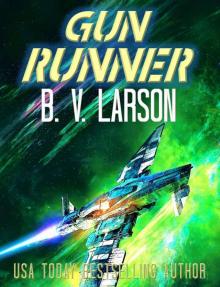 Gun Runner
Gun Runner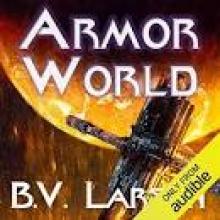 Armor World
Armor World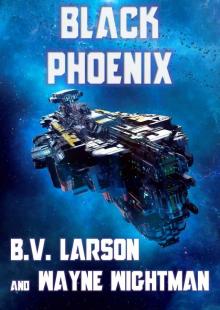 Black Phoenix
Black Phoenix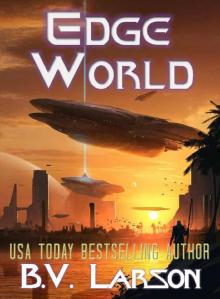 Edge World (Undying Mercenaries Series Book 14)
Edge World (Undying Mercenaries Series Book 14)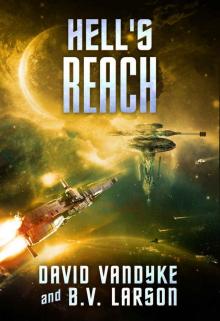 Hell's Reach (Galactic Liberation Series Book 6)
Hell's Reach (Galactic Liberation Series Book 6)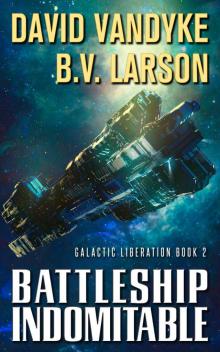 Battleship Indomitable
Battleship Indomitable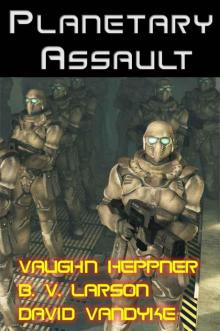 Planetary Assault (Star Force Series)
Planetary Assault (Star Force Series)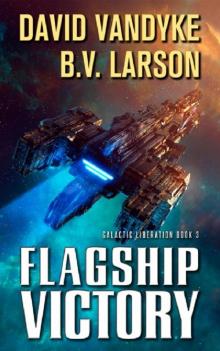 Flagship Victory (Galactic Liberation Book 3)
Flagship Victory (Galactic Liberation Book 3)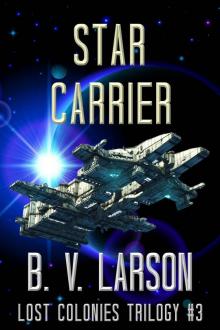 Star Carrier (Lost Colonies Trilogy Book 3)
Star Carrier (Lost Colonies Trilogy Book 3)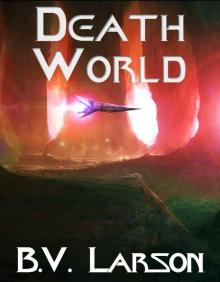 Death World (Undying Mercenaries Series Book 5)
Death World (Undying Mercenaries Series Book 5)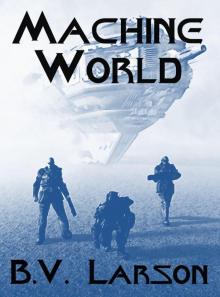 Machine World (Undying Mercenaries Book 4)
Machine World (Undying Mercenaries Book 4) Mech 2
Mech 2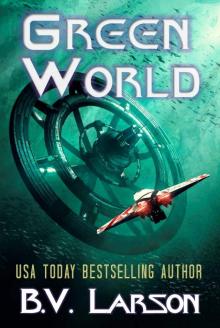 Green World
Green World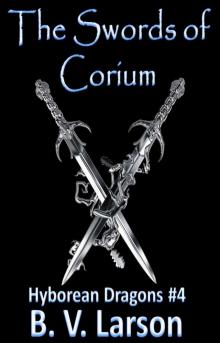 The Swords of Corium
The Swords of Corium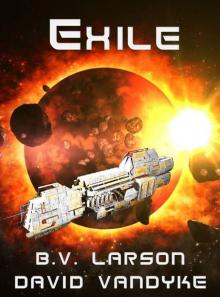 Star Force 11: Exile
Star Force 11: Exile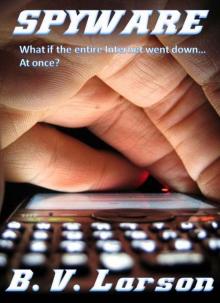 SPYWARE BOOK
SPYWARE BOOK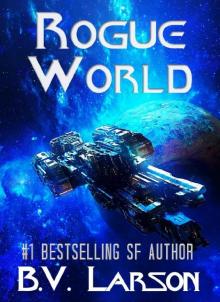 Rogue World (Undying Mercenaries Series Book 7)
Rogue World (Undying Mercenaries Series Book 7)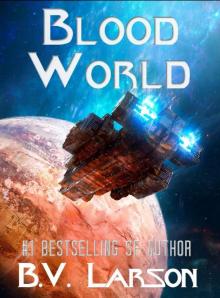 Blood World (Undying Mercenaries Series Book 8)
Blood World (Undying Mercenaries Series Book 8)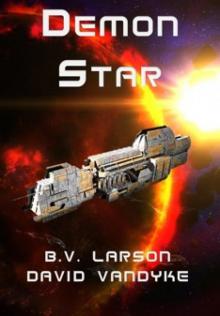 Demon Star
Demon Star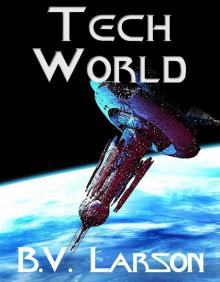 Tech World (Undying Mercenaries Series)
Tech World (Undying Mercenaries Series)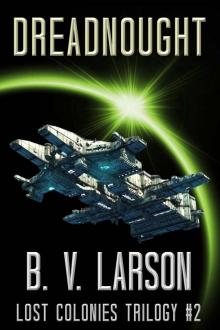 Dreadnought (Lost Colonies Trilogy Book 2)
Dreadnought (Lost Colonies Trilogy Book 2) Shifting
Shifting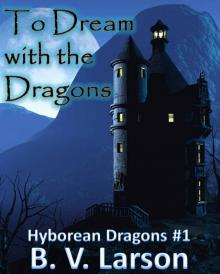 To Dream with the Dragons (Hyborean Dragons)
To Dream with the Dragons (Hyborean Dragons)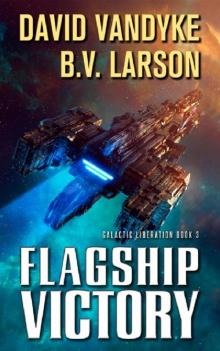 Flagship Victory
Flagship Victory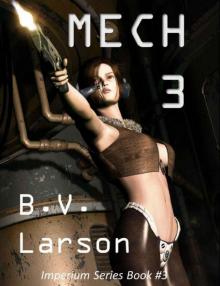 Mech 3: The Empress
Mech 3: The Empress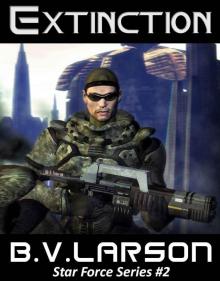 Extinction Ebook Full
Extinction Ebook Full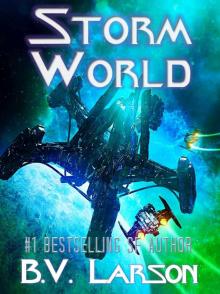 Storm World (Undying Mercenaries Series Book 10)
Storm World (Undying Mercenaries Series Book 10)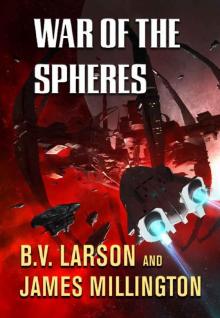 War of the Spheres
War of the Spheres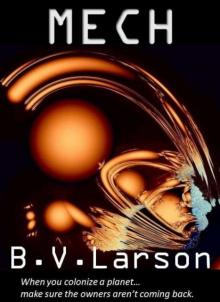 MECH EBOOK
MECH EBOOK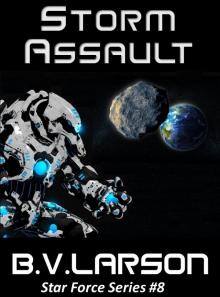 Storm Assault (Star Force Series)
Storm Assault (Star Force Series)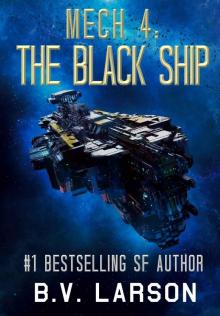 Mech 4: The Black Ship (Imperium Series Book 5)
Mech 4: The Black Ship (Imperium Series Book 5)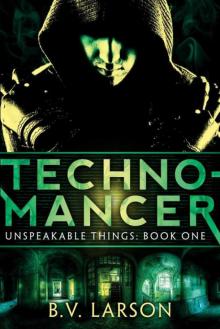 Technomancer
Technomancer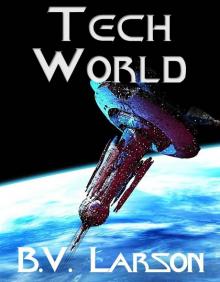 Tech World
Tech World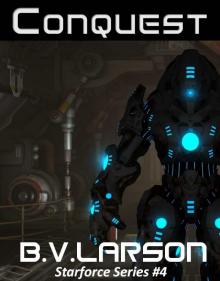 Conquest (Star Force Series)
Conquest (Star Force Series)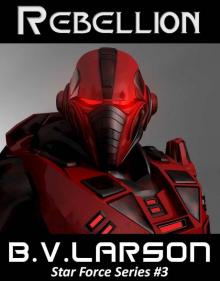 Rebellion sf-3
Rebellion sf-3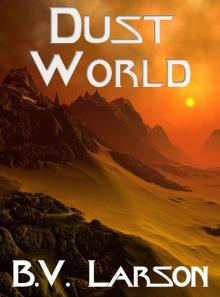 Dust World
Dust World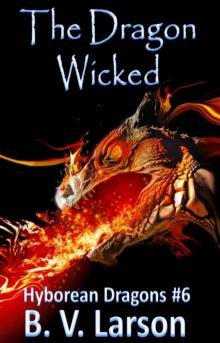 The Dragon Wicked
The Dragon Wicked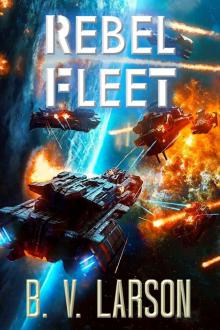 Rebel Fleet
Rebel Fleet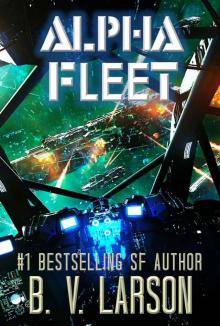 Alpha Fleet (Rebel Fleet Series Book 3)
Alpha Fleet (Rebel Fleet Series Book 3)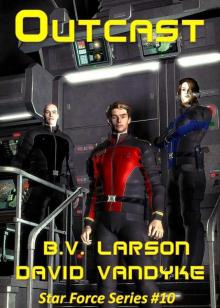 Star Force 10: Outcast
Star Force 10: Outcast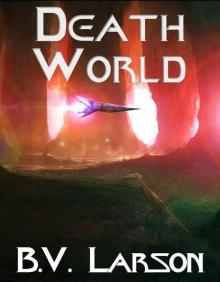 Death World
Death World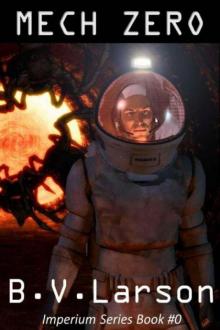 Mech Zero: The Dominant
Mech Zero: The Dominant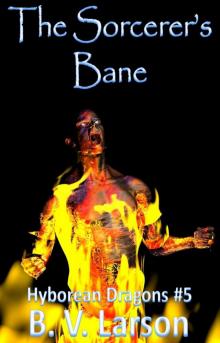 The Sorcerer's Bane
The Sorcerer's Bane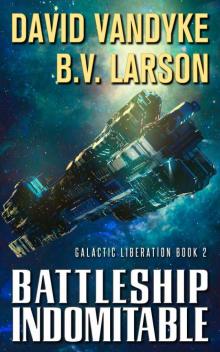 Battleship Indomitable (Galactic Liberation Book 2)
Battleship Indomitable (Galactic Liberation Book 2)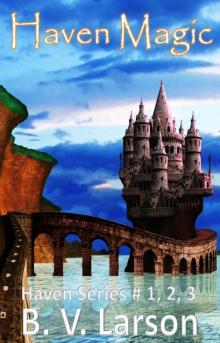 Haven Magic
Haven Magic Amber Magic (Haven Series #1)
Amber Magic (Haven Series #1)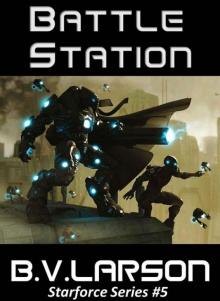 Battle Station sf-5
Battle Station sf-5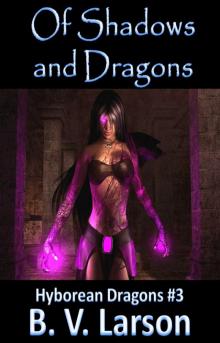 Of Shadows and Dragons
Of Shadows and Dragons Starfire
Starfire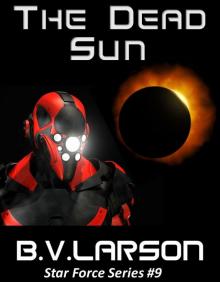 The Dead Sun (Star Force Series)
The Dead Sun (Star Force Series)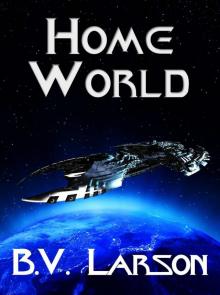 Home World (Undying Mercenaries Series Book 6)
Home World (Undying Mercenaries Series Book 6)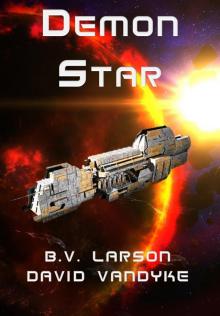 Star Force 12 Demon Star
Star Force 12 Demon Star Dream Magic
Dream Magic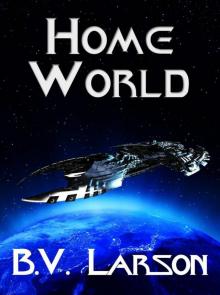 Home World
Home World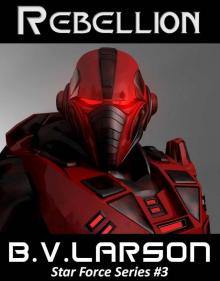 Rebellion Ebook Full
Rebellion Ebook Full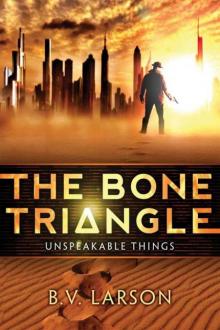 The Bone Triangle
The Bone Triangle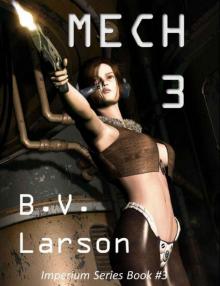 The Empress i-3
The Empress i-3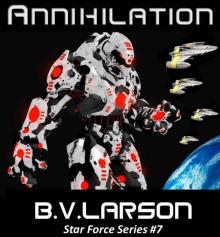 Annihilation (Star Force Series)
Annihilation (Star Force Series)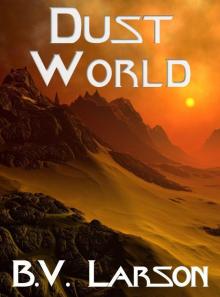 Undying Mercenaries 2: Dust World
Undying Mercenaries 2: Dust World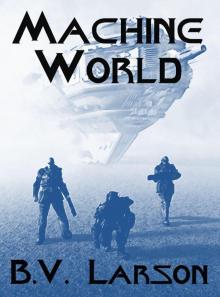 Machine World
Machine World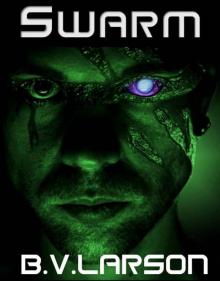 Swarm
Swarm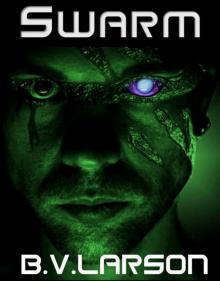 Swarm sf-1
Swarm sf-1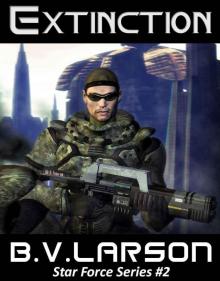 Extinction sf-2
Extinction sf-2 Amber Magic h-1
Amber Magic h-1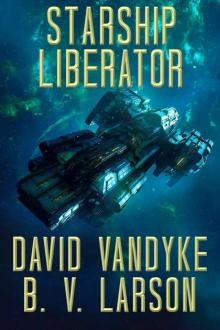 Starship Liberator
Starship Liberator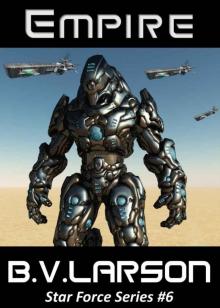 Empire Ebook Full
Empire Ebook Full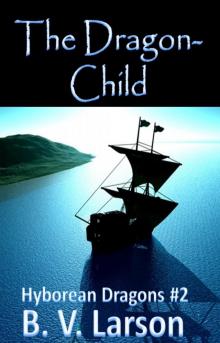 The Dragon-Child
The Dragon-Child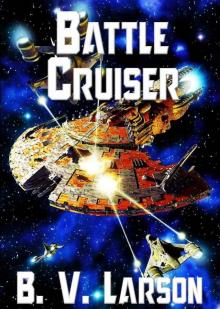 Battle Cruiser
Battle Cruiser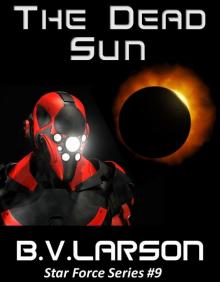 The Dead Sun
The Dead Sun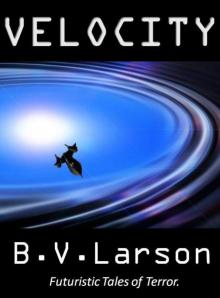 Velocity
Velocity Creatures
Creatures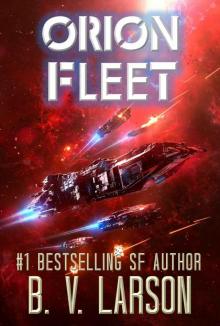 Orion Fleet (Rebel Fleet Series Book 2)
Orion Fleet (Rebel Fleet Series Book 2)